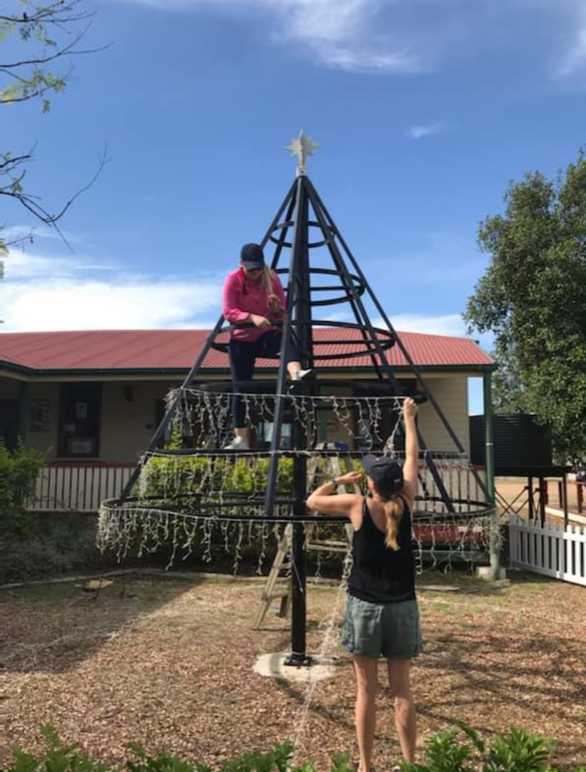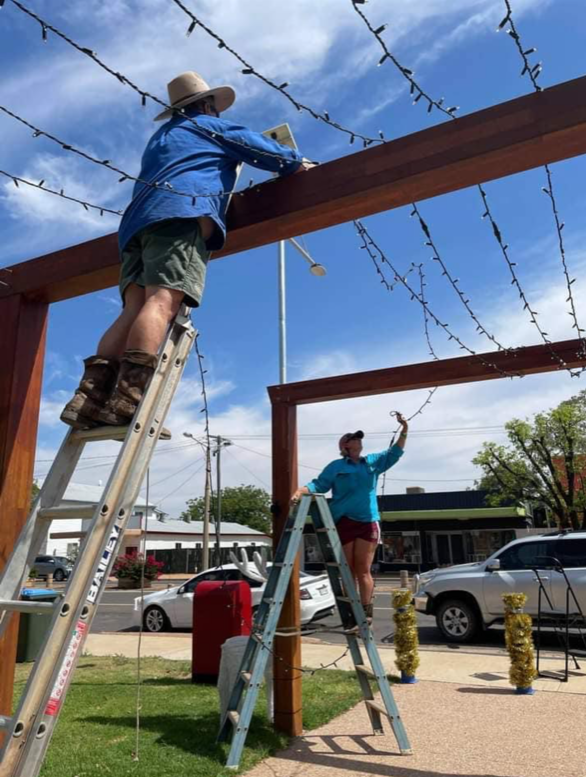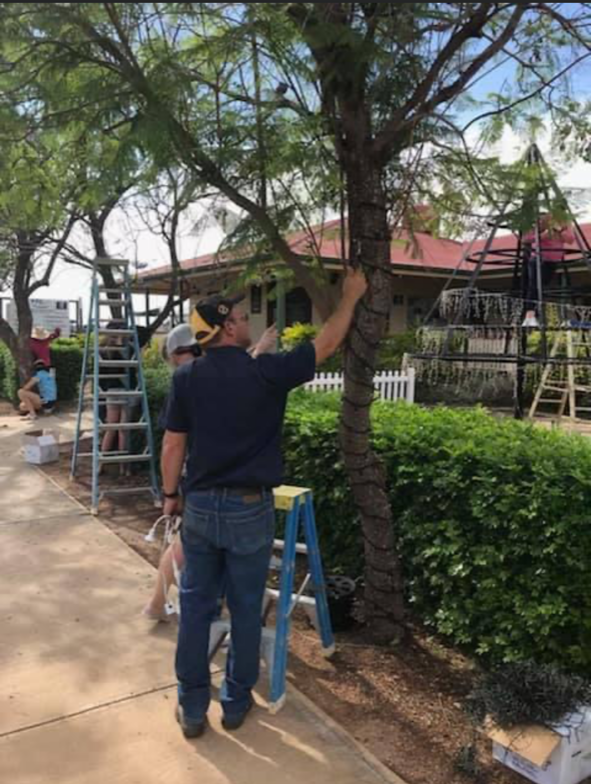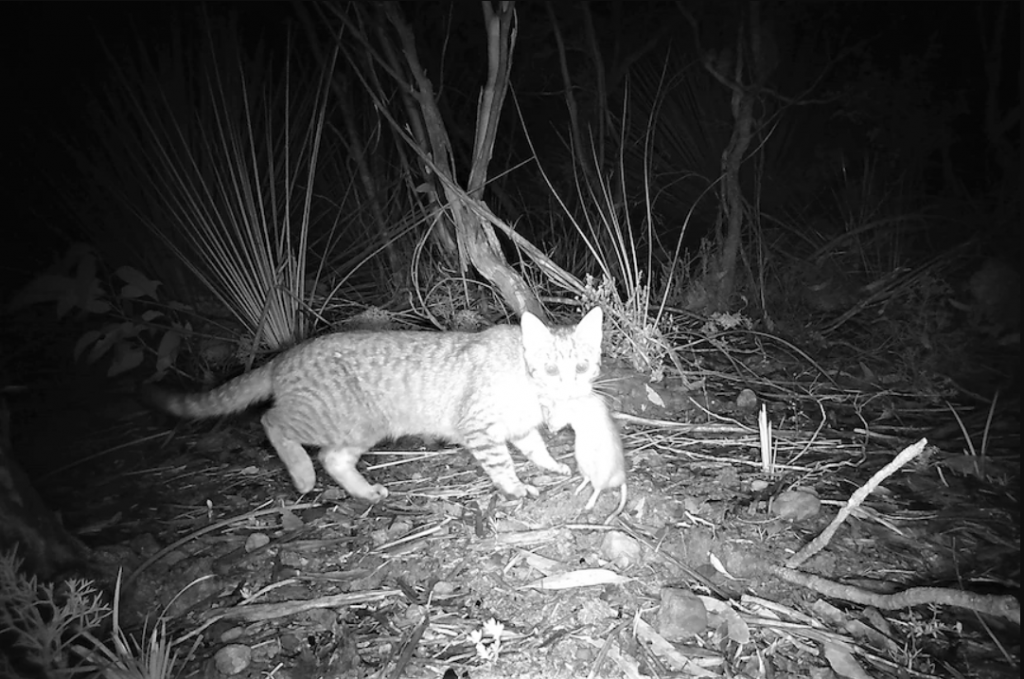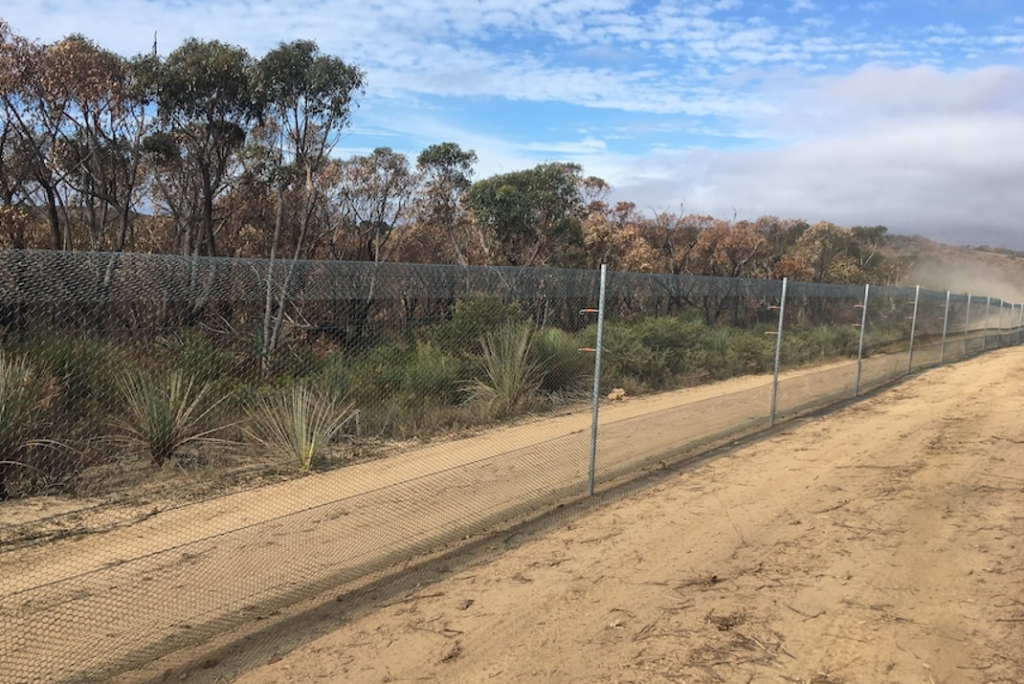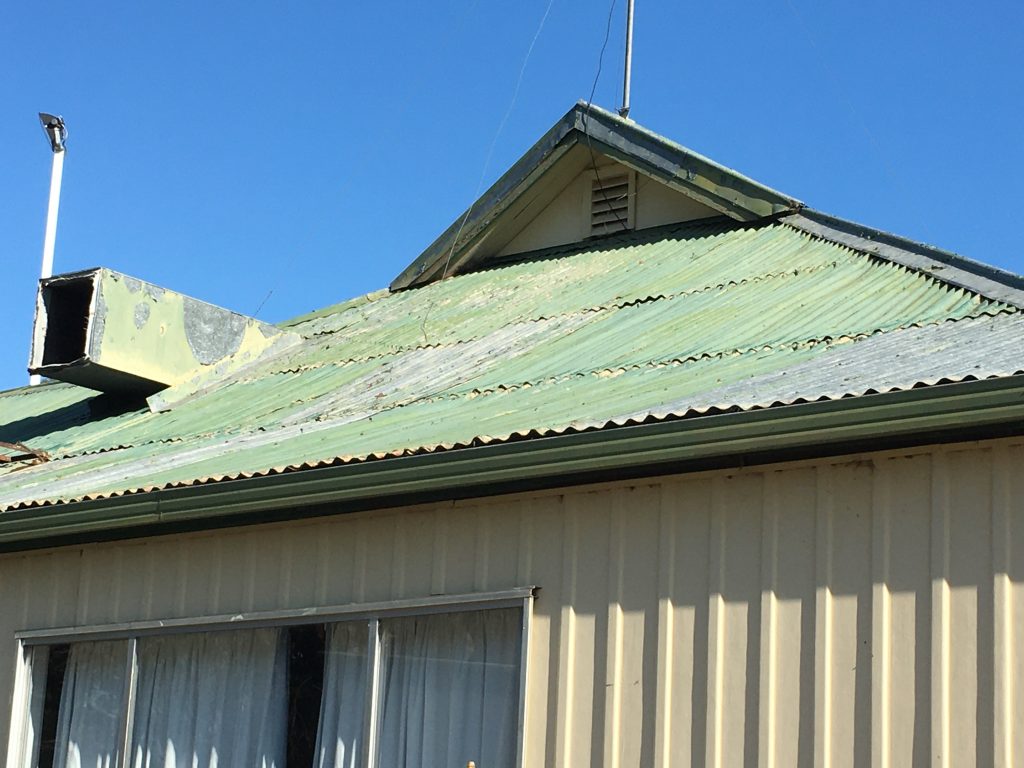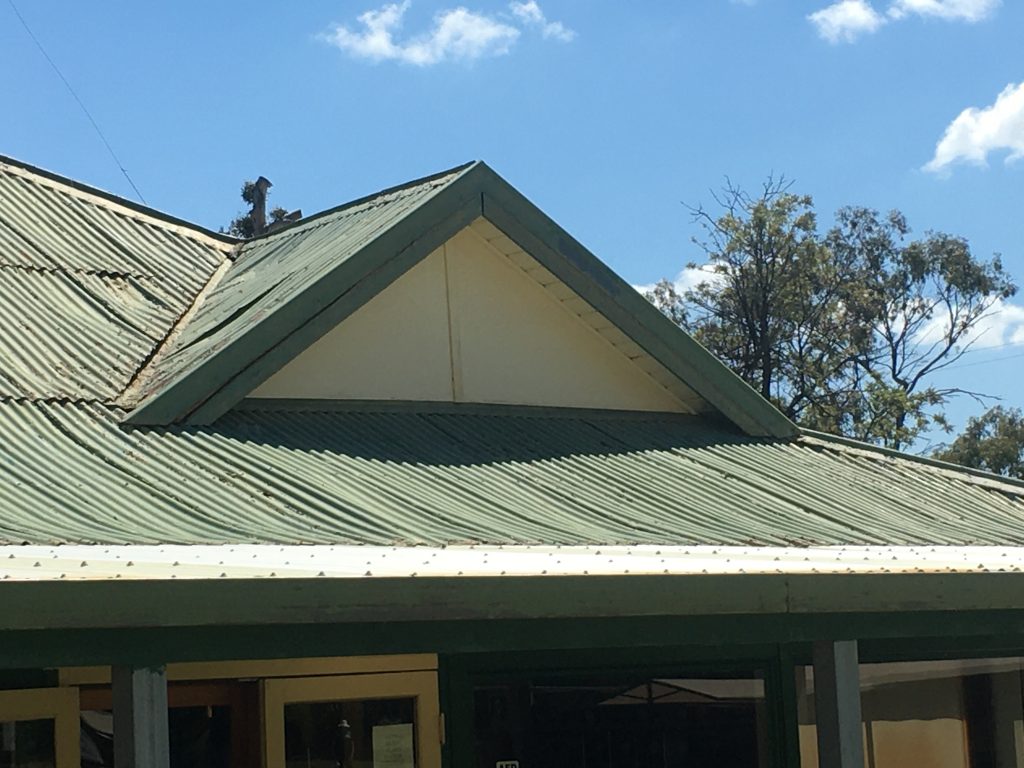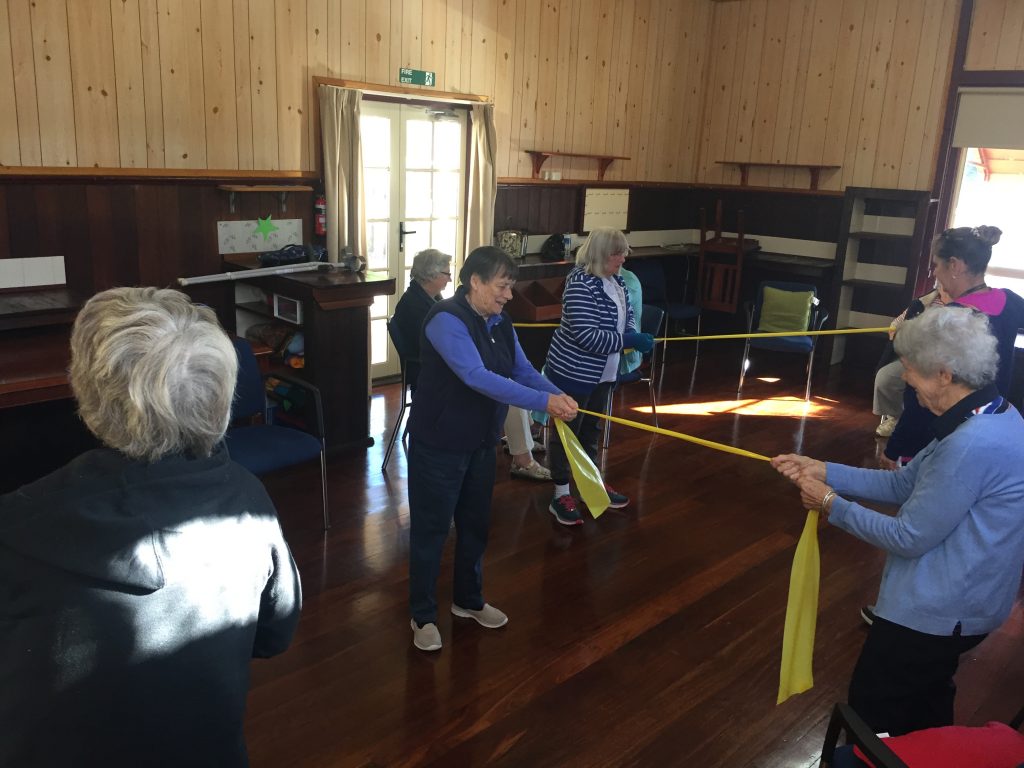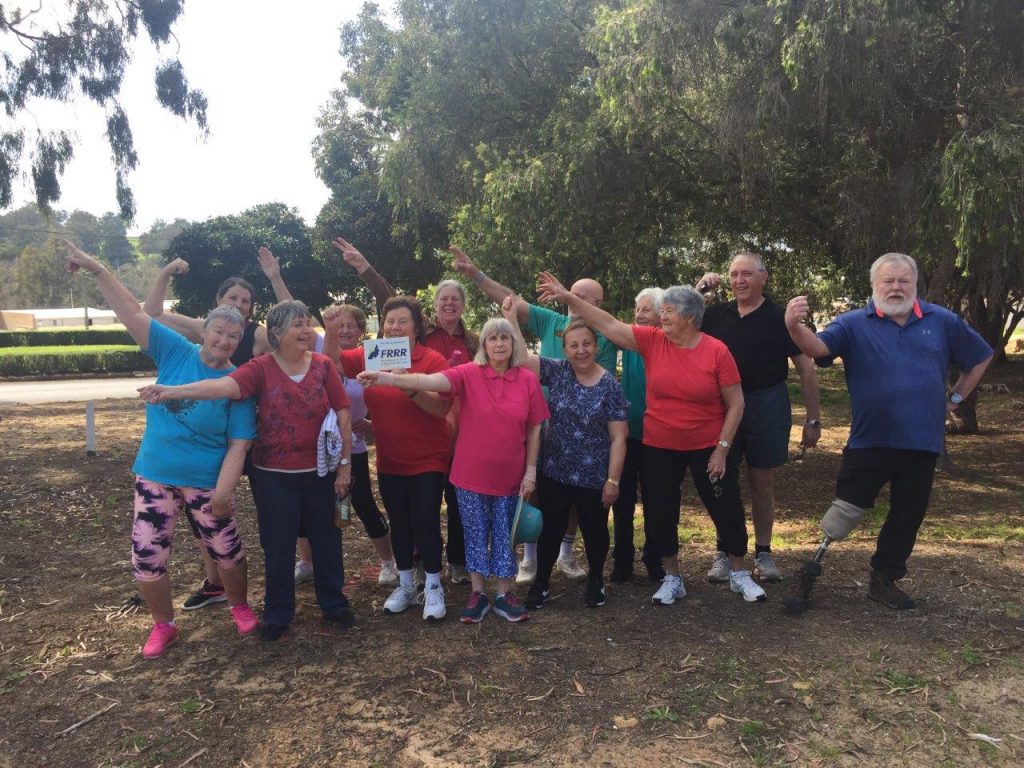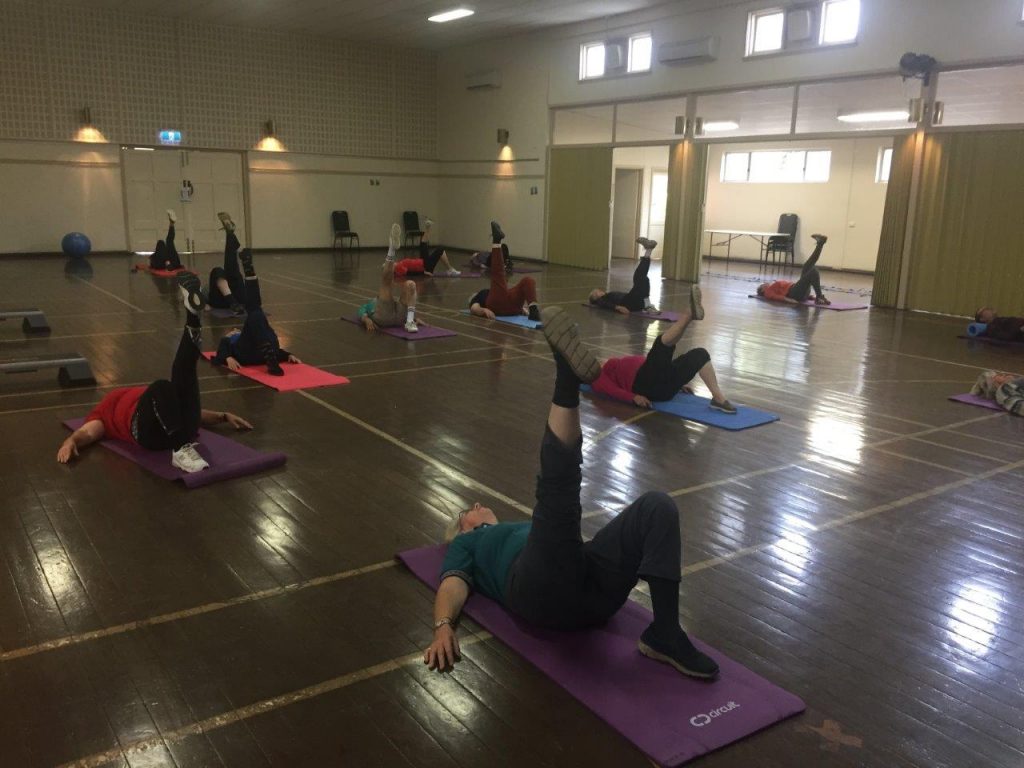Foundation for Rural & Regional Renewal (FRRR)
And support from new IRCF Program Manager and facilitator
Seven not-for-profit organisations (NFPs) are sharing in $135,471 for projects that will strengthen the NFP sector and inter-organisational relationships in Nowra, helping the community to thrive and achieve long-term stability. Nowra NFPs will also have on-the-ground support from a new South Coast Program Manager and local facilitator.
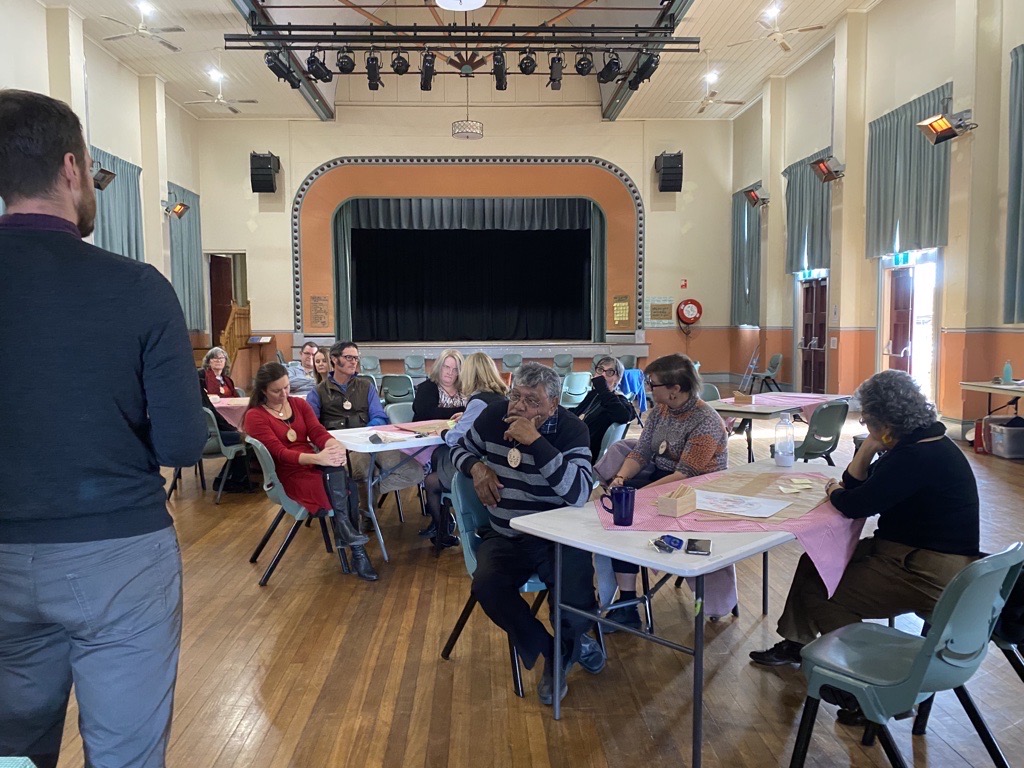
Funded through FRRR’s Investing in Rural Community Futures (IRCF) program, in partnership with The Snow Foundation, these grants will allow Nowra NFPs to properly develop the tools, resources and skills they need to achieve longevity and create permanent change in their communities.
IRCF is a multi-year grassroots program aimed at building the capacity and connectedness of NFPs in select communities in regional New South Wales. As well as grants, these recipients will receive organisational support and coordination in the form of workshops that will help them to implement more effective systems, processes and training within their organisations.
Among the seven projects funded, there is a focus on developing leadership and business skills, technological transformation, cultural immersion and community engagement. These projects address needs highlighted through a community-led Roadmap, the development of which was facilitated by FRRR.
Natalie Egleton, CEO of FRRR, said that these initiatives will have a lasting impact on the people of Nowra.
“It’s fantastic to see the not-for-profit organisations in this round of grants collaborating and learning from their peers, and successfully applying that knowledge to the unique needs and circumstances of their own communities.
“It’s wonderful to see local organisations prioritising community engagement and creating safe cultural spaces. This includes the South Coast Women’s Health & Welfare Aboriginal Corporation, which is using their funding to deliver cultural immersion sessions to 30 Nowra NFP representatives in response to vision identified in the Nowra Community Roadmap,” Ms Egleton said.
Terry Snow, Founder of The Snow Foundation, said partnering with FRRR has allowed his Foundation to have a significant impact on regional NSW areas such as Nowra.
“Having a home and running a business on the South Coast, I understand how important it is to support these not-for-profit organisations. They provide crucial support and fill gaps that help to keep these communities vibrant and self-sufficient. With the resources provided by this program, these organisations will create real change.
“A great example of this is the Nowra Community Food Store, which is using their grant to set up an E-commerce website with an option for contactless delivery, so that families in the Shoalhaven region who don’t own a car can still access fresh food.”
The five other grant recipients in the Nowra region are:
- Cullunghutti Aboriginal Child and Family Centre Aboriginal Corporation, Nowra – Laying the Foundations for the Future of Cullunghutti Aboriginal Child and Family Centre Aboriginal Corporation – Support the Centre’s future vision and rapid growth by appointing a temporary Community Centre Team Leader to support the CEO in an operational capacity. $30,000
- Nowra Sub-Branch of the Returned and Services League of Australia New South Wales Branch, Nowra – Nowra RSL Sub-Branch Upgrade Project 2021 – Accelerate digital transformation and enhance client experience through upgrades to IT equipment and furniture. $16,469
- Shoalhaven Community Preschool Inc, Nowra – The Growth Strategy Project – Strengthen the leadership capacity of the Centre during the Preschool’s relocation and expansion by providing a wage subsidy, expert consultants and professional development. $22,000
- Shoalhaven Health and Arts Inc, Bomaderry – Capacity Building for SHAA’s Future – Strengthen the capacity of SHAA to respond to community demand for their mental health, arts and events programs by paying wages for the currently volunteer-based managers. $14,112
- South Coast Beef Producers Association Inc, Nowra – Governance Training for South Coast Beef Management Committee Members – Strengthen the governance and strategic vision of South Coast Beef through the training of the management committee in governance foundations. $10,590
New IRCF Program Manager – South Coast and Nowra facilitator
Helping Nowra’s NFPs to make the most of the IRCF program is IRCF South Coast’s recently appointed Program Manager, and South Coast local, Carolyn Ardler.
Carolyn comes to FRRR and the IRCF program with extensive experience in place-based delivery to support communities to build capacity and reach their aspirations from the grassroots.
“I am excited to be working on the IRCF program as I strongly believe rural and regional communities have the solutions and strength within them to face their unique challenges. This program allows small not for profits to build their capacity and be more sustainable in the long term.” Ms Ardler said.
Carolyn steps into her new position as Kate Dezarnaulds, FRRR’s previous Program Manager for IRCF South Coast, transitions into the role of IRCF facilitator for Nowra. In this role, Kate will be able to work more directly with Nowra NFPs to connect, build relationships and work together to improve their capacity and sustainability.
In addition to Nowra, the IRCF South Coast program is also working in Batemans Bay and Ulladulla with the support of The Snow Foundation, and in Bay & Basin with the support of Bendigo Bank Community Enterprise Foundation, and in Junee, Leeton and Nambucca Valley in partnership with the Vincent Fairfax Family Foundation.
For more information about the Investing in Rural Community Futures program visit – https://frrr.org.au/ircf-program/.
The town of Dirranbandi, in southwest QLD, was suffering from a lack of Christmas cheer and the general community spirit was a bit flat, following relentless drought over many years. This was also having significant impacts on mental health.
In a bid to tackle these issues, while also putting Dirranbandi on the map for both tourists and locals, the Dirranbandi Progress Association used a $60,000 Tackling Tough Times Together grant, funded by the Australian Government to spark some joy in the township with a stunning lights installation.
With the support of Balonne Shire Council, the Dirranbandi Progress Association brought local tradespeople on board, as well as their local Arts Council, the business community and a work camp, which consisted of skilled prisoners who were being reintegrated back into society. Together, this dedicated team of people designed and fabricated a beautiful display of fairy lights that were installed and displayed throughout the main streets of their town all year round.
Alongside the permanent display, the grant funded Christmas lights, which is the main feature of an annual event attended by around 300 people. Locals from the around the community gather for a BBQ and watch the Christmas lights being turned on, while school children sing carols and everyone embraces the magic of Christmas.
Since having the lights installed and hosting these events, the local community, which was crippled by drought, has been able to congregate, reconnect and have its vibrant spirit reignited. As an added benefit, the local council committed to providing extra support and resources, not only for Dirranbandi, but for surrounding towns as a result of the project.
Mental Health training helps community get in a good place
With the effects of plunging milk prices and bushfires in South West Victoria, the community was feeling strained. Front line workers were regularly being confronted with people breaking down because they couldn’t pay their bills, afford feed for their stock or feeling financial pressure.
The Simpson & District Community Centre (SDCC) knew it was important to keep the conversation about mental health in the community open, to continue to break down the stigma associated with asking for help. So, they wanted to equip local community members with the skills to recognise mental health issues and provide resources for referrals to support services, as well as give them skills in self-care, given they were dealing with more and more people in crisis.
SDCC was established almost four decades ago to support Western Victorian dairying communities. Around 50 people a week use its facilities for meetings and activities – from craft, scrabble days, children’s activities, adult education, digital literacy, a Men’s Shed programme and more. The centre puts considerable effort into reducing social isolation and increasing health and wellbeing in the area.
The Simpson area has been supported by a Dairy Community Support Officer who works with farming community families in crisis. In three years, the social worker’s client numbers went from 9 to 98. She identified a number of mental health issues facing the community including anxiety, depression, drug and alcohol abuse and self-imposed isolation. The community has had one suicide since the beginning of the dairy crisis and wanted to do whatever was needed to prevent more.
Through the In a Good Place Program, funded by CCI Giving, FRRR was able to help fund the delivery the training. In March 2019, nine community members participated in a two-day Mental Health First Aid course. Another session ran in March 2020, with a half day refresher for the previous years’ participants.
In total, 16 members of the community were provided with the training and skills to identify and start a conversation regarding mental health. Those trained included workers from the local supermarket and Post Office, stockfeed supplier and vet group, as well as dairy farmers and volunteers from the Football Netball Club, Men’s Shed, Community Centre, Cricket Club, CFA and Landcare network. The array of participants meant that there was great community coverage, with everyone attending wearing “more than one hat” – so those new skills are going into nearly every organisation and workplace in Simpson.
Furthermore, the instructor for the First Aid program and the Dairy Community Support Officer were able to identify an opportunity to secure funding for additional training that will reach the community, regarding Mental Health in the elderly population. Transitioning off farms for older people is an area of mental health difficulty that the Support Officer sees first hand in her work in the community.
The SDCC maintains that if just one person can be supported through a crisis without a tragedy, then the program will be a success.
“Training more people in the community to recognise the signs and direct them to help or help to them can only improve the long term outcomes for our community and increase the resilience and sense of connection.
“By providing the training we are giving people the skills to take back into the community at their workplaces, homes and recreation activities. The more people who are able to recognise and respond to the signs of deteriorating mental health the stronger our community will be. These skills will be maintained for life and can be shared.”
SDCC Final Report
Congratulations to the SDCC for the great strength and support they provide and their ability to adapt to the community’s changing needs.
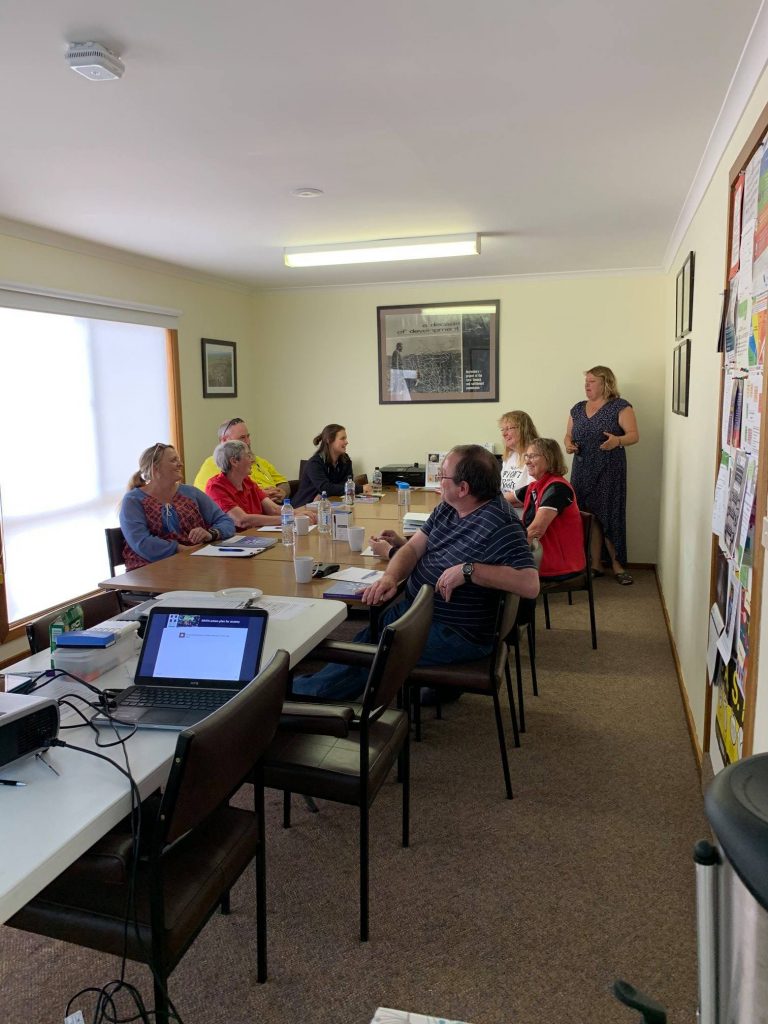
Residents of the severely drought-hit Marra Creek community, in NSW, have traditionally had to travel up to 250km to see a movie or drive 80km to the nearest hotel for social get-togethers.
The Marra Creek Public School Parents and Citizens Association decided things needed to change and set about creating an option for locals to enjoy pizza and a movie closer to home.
The school, located on the North West Plains, is one of the smallest in NSW, with a current enrolment of seven students, making it very isolated. Thanks to the ongoing and severe drought conditions in the area, the Marra Creek community has struggled with fundraising for workshops and events for local people.
P&C President Will Woolcock said the project aimed to combat isolation and bring the widespread district – which spans Bogan, Brewarrina and Warren – closer together to reconnect, strengthen community spirit, relax and enjoy a break.
“Between the lack of water and rain for crops, constantly feeding animals and financial difficulties, our community has had very little chance to get together,” he said.
With the help of a $5,000 Aussie Cotton Farmers Grow Communities Grant, their wish for a pizza oven and movie equipment for the school was been granted. The grant covered a media projector, outdoor screen, sound system, set top box and satellite dish as well as a pizza oven at the school.
This means the community is now able to gather locally for social activities including film nights and watching major sporting events, although COVID-19 brought additional issues and delayed the launch event and initial planned activities.

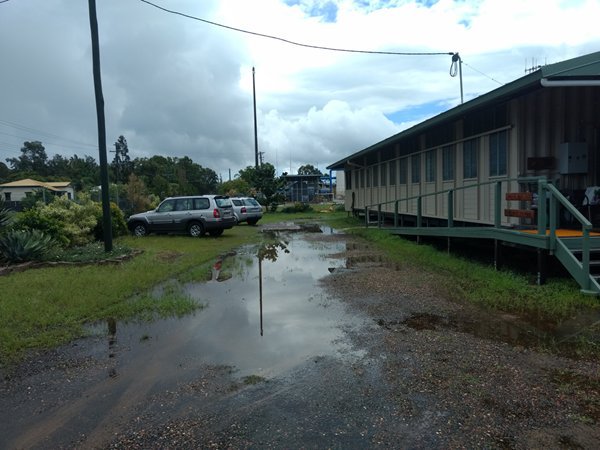
The resolution of issues causing frequent flooding of the carpark for the Burrum District Community’s Men’s Shed in Howard, QLD, has enabled more seniors to have safe access to opportunities to learn new skills with like-minded community members.
The carpark was flooding constantly due to weather issues and stormwater runoff, making access to steps and a ramp difficult for senior members, meaning some were not able to visit the shed.
A $2,200 FRRR Strengthening Rural Communities grant funded drainage and an all-weather carpark. Members also contributed by pitching in to clean up weeds – a project that need to be repeated when the project was stalled due to COVID-19 closures of the facility.
Burrum District Community Men’s Shed President Mark Wake said the facility provides a safe, friendly and healing environment with the emphasis on men’s health and encouraging social inclusion. Members can work on meaningful projects at their own pace, in their own time and in the company of others.
“The shed provides a friendly, relaxing environment that encourages men and assists with social isolation. It also provides support in times of bereavement, ill health, redundancy and other life changing events,” he said.
“The success of this project will see our shed becoming a welcoming environment in any weather as a drop-in centre for lonely, isolated men in the community,” Mr Wake said.
Among the improvements are access to the main shed during inclement weather, wheelchair access to the ramp and access to the metal work shed. An additional benefit was an increase in usable off-street parking leading to an increase in membership and community members inquiring about other services such as woodwork lessons.
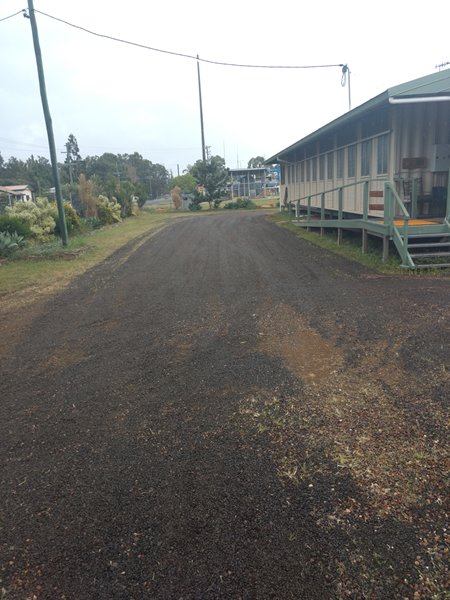
Just off the South Australian mainland you will find Kangaroo Island (KI). Australia’s third largest Island, KI is known for its stunning nature reserves and wildlife. During the 2019/20 bushfires, the flora and fauna of KI was severely impacted. Around 210,000 ha was burned, which destroyed numerous bushland patches of reserves and private property. The true damage of what this has done to the environment and its habitats is still being determined; it may take years to properly understand the impacts.
With this in mind, all remaining vegetation across KI is now considered to be highly important for conservation. Protecting the wildlife that live within these bushland areas is a high priority to organisations like the Nature Foundation. Their vision is to inspire people to connect with and conserve the natural habitat of South Australia for future generations. The Nature Foundation is involved in a number of projects that educate the broader community, provides scientific research and raises funds and awareness for their conservation work.
One of their more recent and ongoing projects is completely eradicating feral cats from Dudley Peninsula, which is located on the eastern side of the Island. Conservationists report that the feral cats living on KI are preying on small animals and birds that are already under threat from the mass loss to their habitat after the bushfires. They are also known carriers of parasitic diseases (Sarcosporidiosis and Toxoplasmosis), which have caused economic impacts on the island’s primary producers. These diseases are known to affect sheep across the island.
To help reduce the numbers of feral cats, the Nature Foundation received a $25,000 Strengthening Rural Communities (SRC) grant, which was funded by the Fire Fight Australia Fund from donations received during the concert for national bushfire relief in February 2020. The SRC grant was used to purchase and install equipment needed to monitor the cat numbers and their movements around the peninsula. The Nature Foundation has built a cat proof fence that separates the peninsula from the remainder of the Island. They made sure to include gaps in the fence so other wildlife like Kangaroos can get through to the other side. The cameras were installed at the fence breaks to monitor the effect of the fences and to determine the best way to control feral cat numbers.
Since installing the fence and the cameras, it has been reported that numbers and diversity of species within the enclosed area have almost doubled. As reported by the ABC, the current traps set up along the fence are proving to be extremely successful in reducing the number of feral cats to the area.
Deep in country Victoria, a definitive before and after makeover is apparent. For years the Golf Club of Warracknabeal, about 340 km north west of Melbourne, made do with a rusty and weathered roof sitting atop a building nearly 100 years old.
While the region is known for its grain, the town has been hit hard by the ravages of drought and subsequently COVID-19. Since the mid 1900s, the Warracknabeal Golf Club has held birthday parties, weddings, wakes, meetings and everything in between. A warm welcoming atmosphere has always been their intention, although this has become increasingly difficult to offer with the decline of the building, most notably its roof.
But with the support of a grant through FRRR’s Tackling Tough Times Together program, funded by the Australian Government, the Warracknabeal Golf Club launched their Green Roof Project.
With the $46,125 grant, and with the help of professionals and a swathe of willing and hardworking volunteers, they replaced the old leaking roof with a green’ roof. In addition to the new roof, the old and worn guttering was replaced and insulation and sisalation installed to facilitate far greater energy efficiency.
David Baxter from the golf club commented that modernising the building has reignited interest in the Golf Club as somewhere for people to gather and come together as a community in a now very comfortable environment.
“In recent years, we had seen very few functions but this year the increase in its use has been great. Organisations such as VFF, Lions Club, local schools, Grain Corp, the Arts Council and Lutheran Ladies have since used the facility and commented on the improvements particularly on the heating/cooling aspect.”
Mr Baxter noted his resounding gratitude for the project being able to go ahead.
“So much has been achieved thanks to the grant from FRRR, which made it possible earlier than we anticipated, as major fundraising over a number of years would have been required.
“More than ever, we are looking forward to becoming an important cog in our community in providing a place to meet, socialise and celebrate”.
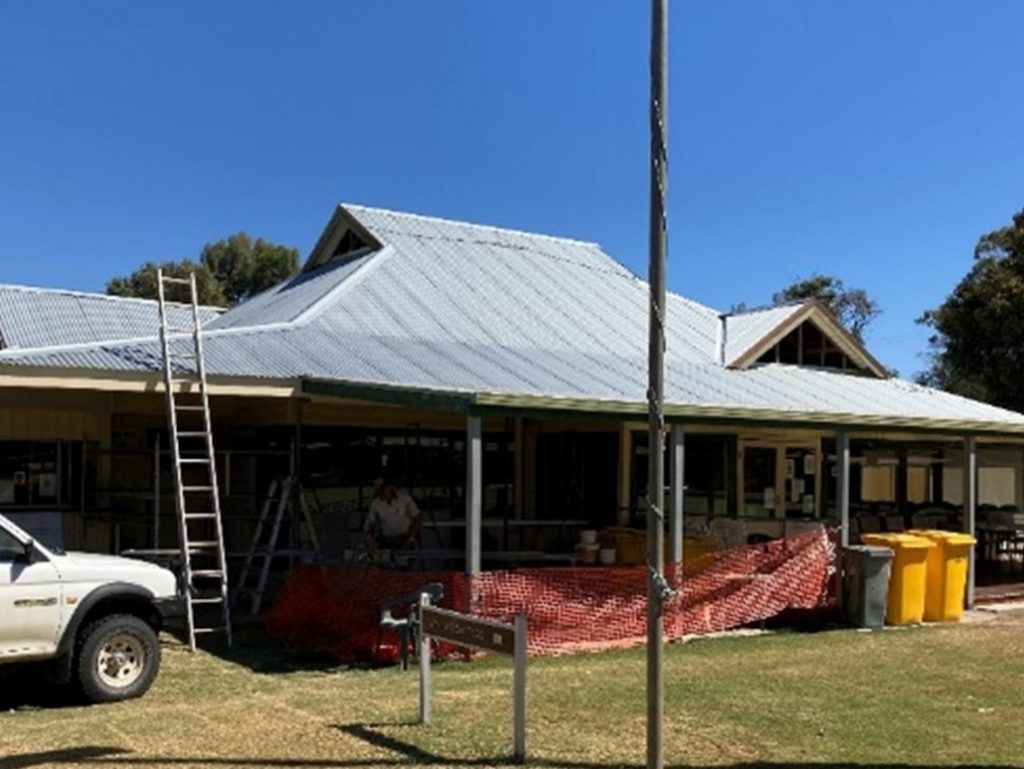
In Boyup Brook, WA, the Community Resource Centre wanted to encourage older locals to keep fit and healthy. Despite the large numbers in the area (49% of community members are over the age of 50) there was no exercise group locally catering to the older age bracket, who are at risk from a sedentary lifestyle which affects their health and puts subsequent pressure on local health services.
With four staff, 48 members and a committee of eight, the Boyup Brook Community Resource Centre (BBCRC) already plays a big part in the health and wellbeing of the community, hosting a visiting chiropractor, running a community garden, offering cancer support information and various other exercise classes.
The Centre applied to FRRR for funding to run a Seniors Exercise and Activity (SEA) Program. They felt the program would improve the cardio-fitness and mobility of elderly community members and fill an unmet need in the town, capturing “a segment of the population who will benefit from movement and activity but who don’t necessarily want to go to a more strenuous class.”
In July 2019, with a $4,419 Strengthening Rural Communities grant funded by the John T Reid Charitable Trusts, arrangements were made for the program to start. The Boyup Brook Town Hall was booked to provide a central, accessible and comfortable venue for participants. Equipment was purchased, and the class was advertised in the Boyup Gazette, on noticeboards in the community, the website, social media and also promoted by word of mouth.
Classes ran from August 2019 until June 2020, and were facilitated by CRC Manager Jodi Nield, who holds a Bachelor of Science (Sports Science) and has many years of experience in conducting similar projects. Through her position and involvement in the community, Jodi already had good rapport with local seniors.
Each session was planned to incorporate a variety of group and individual exercises, games and circuit activities that promoted fitness, flexibility, strength and balance. Participants were encouraged to exercise at their own pace with support from the instructor, and encouragement from fellow participants.
Funding also enabled the production of exercise booklets, which were a key component in enabling participants to continue their exercise at home when classes couldn’t be held face to face due to COVID-19 restrictions. Not everyone returned following the break, but the 40 sessions were still able to be conducted during the term of the project, with an average of 12 people attending each session.
“I am most proud of how the program was diverse and inclusive of disability. One participant was a leg amputee, and another an arm amputee. Others had restricted movement in knees, wrists and shoulders. Some had good levels of physical fitness, whereas others had limited fitness, however all were included in the program with alternative activities provided if required.”
Jodi Nield
Manager, Boyup Brook Community Resource Centre
This project not only improved the fitness and quality of life of these residents, but also their social connections and emotional wellbeing. Ms Nield noted that many of the participants were heading out for coffee following the sessions, and the whole community will indirectly benefit from a more connected and engaged senior demographic.

